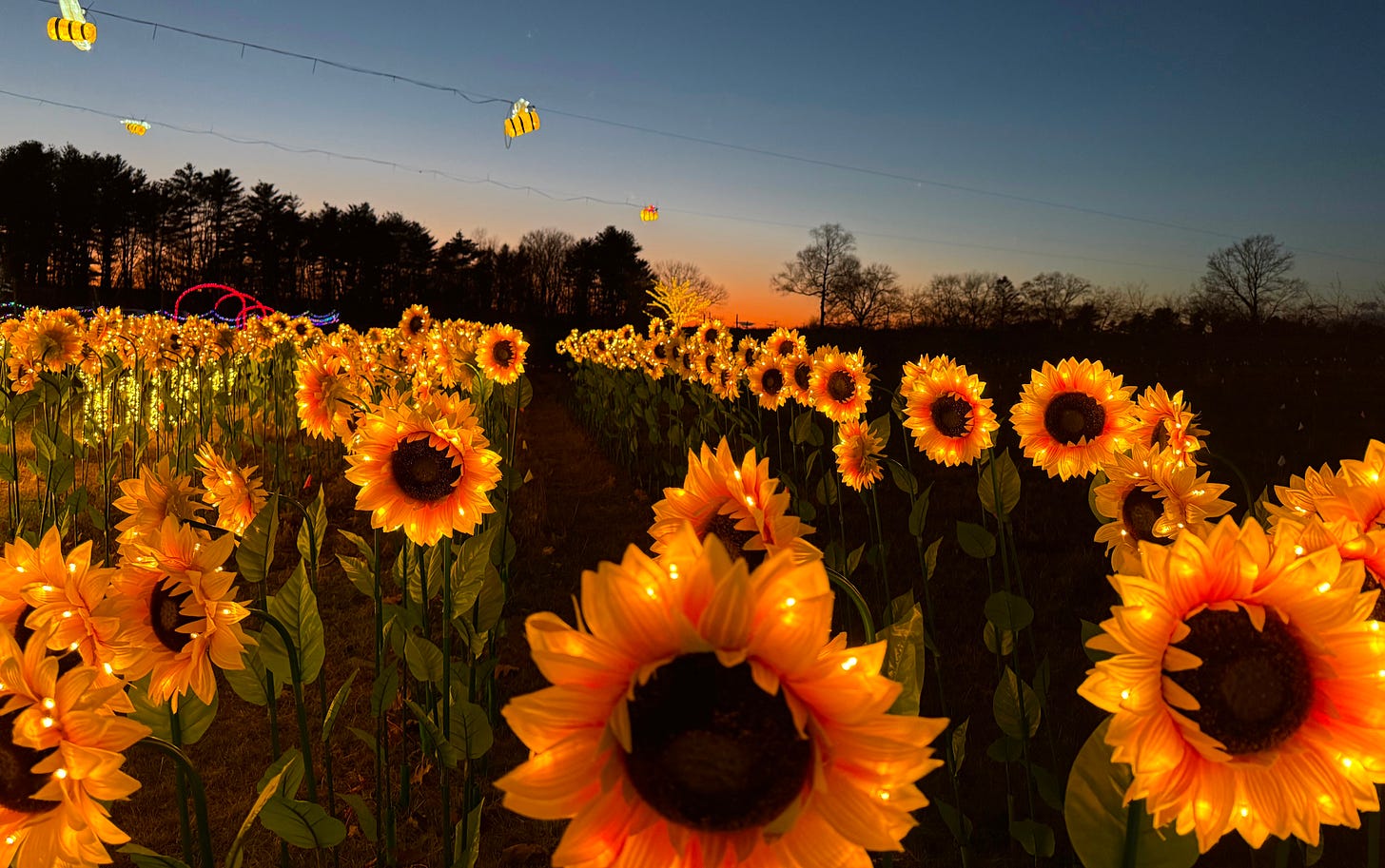Welcome to the future. It’s the past
A faster car, a cheaper burger, and the end of the world
There’s no doubt that technology has driven extraordinary human progress in the past 100 years.
In the early 20s, radio broadcasts were only just becoming available in American homes. Ford introduced the Model T truck. An early version of the traffic signal was invented. Jazz thrived in its golden era, but for most people, life remained difficult, with an average life expectancy of just 60 years.
A century later, we have TikTok, the Cybertruck, and—though we may live longer—obesity rates have nearly quadrupled. We are, paradoxically, both healthier and unhealthier than before.
AI is accelerating at an unnerving pace, even beyond experts' understanding. And the average American owes well over $100K in consumer debt, but we’ll still line up for the iPhone 17 because it’s thinner and a new shade of gray.
Consider this contrast: In 1925, Fitzgerald dropped The Great Gatsby. In 2025, Trump dropped a memecoin—along with FEMA, the Paris climate agreement, and most federal DEI programs. ‘Dropped’ is a double entendre; ‘progress’ isn’t—but it might not mean what we think.
In fact, ‘progress’ starts to feel like a really weird word to use so frequently, especially when we look at where many Americans are struggling the most: rising living costs, declining mental health, climate disasters, gender inequality—and of course, gun violence. Less than 48 hours into 2025, 78 people were killed and 197 injured in shootings.
Are we more connected? Technically, sure. We’re also lonelier, much lonelier— suicide rates in the US have risen by 30% since 2002. In fact, suicide was the second leading cause of death among people ages 10 to 14 in 2022. Again, ‘progress’ isn’t necessarily the word I’d choose.
And actually, let’s stop calling it ‘connection.’ It’s not.
But here’s the thing: we don’t really progress—we just escalate. We invent milestones to tell ourselves we’ve evolved, that we’re smarter, kinder, more enlightened. But at the core, we’re still just proving ourselves to each other, still locked in the same primitive contests we’ve always been.
Which brings me to wolves.
Barry Lopez, in Of Wolves and Men, put it like this:
"Part of the tragedy, and it was a tragedy, was that wolves that bothered no cattle were hunted down by men that largely wanted to prove to other men that they were no fools."
To sum up Of Wolves and Men is a rather subjective activity. I liked this summary I found somewhere on the internets: “Humankind's relationship with the wolf is the sum of a spectrum of responses ranging from fear to admiration and affection.” Wolves and humans have had a fuck-marry-kill relationship. We loathe them, we love them, and everything in between. And by ‘everything in between,’ I mean we’ve hunted them for sport, vilified them under false pretenses, and woven them into myths and nightmares, casting them as evil in stories that shaped entire cultures. We’ve feared them, revered them, and at times even tried to eradicate them only to later realize their importance and fight for their survival. Our relationship with them is as complex as they are, a tangled web of fascination, fear, and responsibility.
Why am I ranting about society and bringing wolves into it? Because people don’t change. We just call our escalations progress. You make a car, I make one faster. You make a hamburger, I sell a cheaper, shittier version. The game never stops—only the mechanics evolve.
My fear? Technology isn’t just another Model A after the Model T topped out at 40 mph. It’s a far more dangerous game. Are we building a better future for the planet or are we just doing what we’ve always done—laying our little Elons on the table and reaching for the tape measure?



